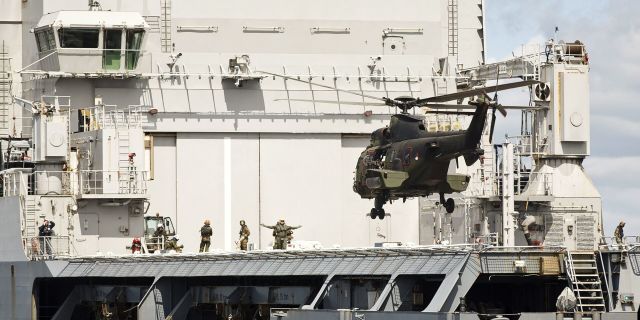Aamulehti: Finland has spent hundreds of millions of euros on armament before joining NATOFinland is still waiting for permission from Hungary and Turkey to join NATO, but is already filling weapons arsenals, Aamulehti reports.
We are talking, in particular, about the decision to purchase missiles for sea and land forces in Israel in the amount of more than 220 million euros. There are other major acquisitions. Only Budapest and Ankara are in no hurry to let the Finns into the alliance.
Editorial articleOn December 9th, the Finnish Ministry of Defense decided to purchase missiles for the sea and land forces in Israel in the amount of more than 220 million euros.
They can be used to destroy tanks and military vessels.
Finland decided to entrust the same country with another, larger deal for the purchase of weapons. At the beginning of 2023, Finland is going to sign an agreement on the acquisition of missiles there worth several hundred million euros.
The need for weapons became obvious in connection with the events in Ukraine: on the eve of winter, Russia focused on destroying power plants and other energy systems, since militarily it could not do anything else. Finland must be ready to protect its infrastructure.
We are not waiting for final admission to NATO in inaction. Finland has already been supported by major members of the alliance, but it seems that Turkey's support is possible only after the presidential elections, which will be held there in June next year.
Hungary, in turn, announced that it would ratify Finland's membership in the alliance in early February. However, the situation may be affected by the freezing of EU financial aid payments for Hungary in the amount of 13 billion euros, since this country froze the EU financial aid package for Ukraine in the amount of 18 billion euros, which shocked many.
Due to the threat from Russia, Finland has increased its combat readiness. Recently it was reported about the procurement of the necessary amount of cereals, which can be used in case of emergency situations within 8.5 months. Previously, a six-month supply was considered sufficient.
It is planned to provide energy needs, including with the help of a floating LNG terminal, which will arrive at the Finnish port of Inkoo this week. After Russia "shut off the gas taps," Finland leased the terminal for ten years. In unstable times, the terminal is also valuable as a storage facility, since the use of natural gas will not stop in winter: for example, the Tampere power plant is currently running on natural gas.
It will not be possible to abandon fossil fuels in the production of electricity and heat yet. In order to have a sufficient amount of electricity, in November it was necessary to put into operation the only coal—fired power plant in Finland - the reserve power plant Meri-Pori with a capacity of 560 MW. Its capacity is about a third of the full capacity of the third reactor of the Olkiluoto NPP, which cannot be counted on this winter.

